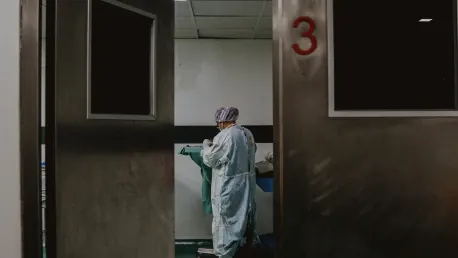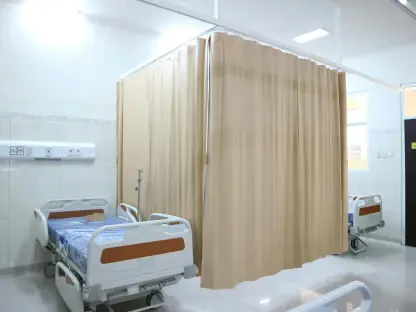The abrupt temporary closure of the Kwazakhele Clinic due to rising criminal activities has sent shockwaves through the community, impacting both residents and healthcare workers who depend on its services. The clinic, a pivotal healthcare facility in Kwazakhele, found itself at the center of a critical decision driven by safety concerns. This move underscores the broader challenges faced by communities grappling with escalating crime, highlighting the precarious balance between maintaining essential services and ensuring the safety of those who provide and receive them. The closure has brought to light significant issues around community safety, healthcare accessibility, and the ripple effects on local public services.
Community Alert
Residents of Kwazakhele took proactive measures earlier this week by informing healthcare workers about the potential risk of criminal attacks targeting the clinic. The caution expressed by residents on Tuesday prompted a swift reaction from the health authorities, leading to the clinic’s abrupt shutdown. This vigilant communication from the community underscores their collective concern for the well-being of both the clinic staff and the patients who depend on the facility for their medical needs. The immediate warning from residents highlights a growing unease within the neighborhood as crime rates continue to escalate.
As criminal activities rise, the community’s focus has significantly shifted towards ensuring safety, even if it means disrupting access to fundamental services like healthcare. The proactive stance taken by the community reflects the heightened level of anxiety and urgency among the residents. Their determination to preempt any potential attacks on the facility illustrates the severity of the threat and the immediate need for measures to protect the safety of all those involved. This collective effort portrays a neighborhood on high alert, striving to safeguard both lives and livelihoods in the face of mounting dangers.
Safety Concerns
The primary driver behind the clinic’s closure is the rising criminal activities in the vicinity, posing severe threats to the safety of healthcare workers and patients. This decision, although temporary, is seen as a necessary step to protect those who rely on the clinic for their medical needs. The suspension of services raises broader issues surrounding overall security in Kwazakhele, as healthcare workers and patients are both concerned about immediate and long-term risks. The situation brings to light the critical challenges faced by medical practitioners who, being on the front line, are directly impacted by security issues that hinder their ability to provide care effectively.
Healthcare disruptions due to security concerns underscore a significant and growing problem in the region. As crime continues to escalate, the ability of healthcare facilities to operate safely is compromised, creating a ripple effect that can lead to prolonged medical crises. Patients and healthcare workers alike must navigate an environment where their safety is not guaranteed, affecting the overall quality of care delivered. The community is faced with the urgent need to address these safety concerns to ensure that essential services remain accessible without compromising the well-being of those who provide and seek these services.
Impact on Healthcare Services
With the Kwazakhele Clinic being a crucial provider of healthcare services to many residents, its closure leaves a significant void in medical care. The clinic offers both routine and emergency medical services, and its sudden unavailability forces patients to seek alternatives that may be less convenient and more difficult to access. This disruption imposes additional stress on an already vulnerable community, as residents navigate limited healthcare options amidst heightened safety concerns. The closure not only strains neighboring facilities but also potentially delays crucial treatments for patients in need.
For many residents, the Kwazakhele Clinic is more than just a healthcare provider; it is a lifeline within a community facing limited access to medical services. The absence of this facility compounds the difficulties faced by individuals already contending with various socioeconomic challenges. The sudden requirement to find new healthcare arrangements can strain personal resources and exacerbate existing health issues, creating a ripple effect that impacts the community’s overall well-being. These challenges underscore the critical role that the clinic plays and the broader implications of its temporary closure on the local healthcare ecosystem.
Community Reactions
The decision to close the Kwazakhele Clinic has elicited strong reactions from the local community, with residents expressing deep disappointment and concern over the potential long-term ramifications. Despite their proactive warnings aimed at preventing such outcomes, the necessary shutdown makes clear the extent and severity of the criminal threats facing the area. Community members fear that this temporary measure could lead to prolonged healthcare deficiencies, further exacerbating their existing challenges and heightening anxiety about the future of essential services in their neighborhood.
Voices from the community convey a mixture of frustration and resilience. While residents are disheartened by the clinic’s closure, viewing it as a retreat in the face of rising crime, their initial warnings also highlight a collective resilience and commitment to protecting one another. The community’s proactive stance reflects a shared determination to safeguard their well-being, even if it means facing temporary setbacks. This tension between hope and frustration captures the complex realities of living in a region where safety and access to essential services are in a delicate balance.
Temporary Measure
The sudden temporary closure of the Kwazakhele Clinic due to an uptick in criminal activity has sent shockwaves through the community, affecting both residents and healthcare providers who rely on its services. As a crucial healthcare hub in Kwazakhele, the clinic faced a critical decision driven by the need for safety. This situation highlights the broader challenges that communities face as they grapple with rising crime rates, revealing the delicate balance between maintaining essential services and ensuring the security of both providers and recipients. The shutdown has placed a significant spotlight on pressing issues such as community safety, healthcare access, and the broader impacts on local public services. This closure emphasizes the interdependent relationship between safety and public health, revealing the need for comprehensive strategies to address both. As residents and healthcare workers navigate this disruption, the situation underscores the importance of a multifaceted approach to community welfare, where security and healthcare must go hand in hand for sustainable solutions.









